Postcolonial Nations,
Islands, and Tourism
RETHINKING THE ISLAND
The Rethinking the Island series seeks to unsettle assumptions by comprehensively investigating the range of topological and topographical characteristics that lie at the heart of the idea of islandness.
Series Editors:
Elaine Stratford, Professor of Cultural and Political Geography at the University of Tasmania, Interim Director of The Peter Underwood Centre, Deputy Director of Institute for the Study of Social Change.
Godfrey Baldacchino, Professor of Sociology at the University of Malta, UNESCO Co-Chair in Island Studies and Sustainability.
Elizabeth McMahon, Associate Professor in the School of the Arts and Media, University of New South Wales, Australia.
Titles in the Series:
Theorizing Literary Islands: The Island Trope in Contemporary Robinsonade Narratives
, Ian Kinane
Island Genres, Genre Islands: Conceptualization and Representation in Popular Fiction, Ralph Crane and Lisa Fletcher
Postcolonial Nations, Islands, and Tourism: Reading Real and Imagined Spaces, Helen Kapstein
Islands of Poetry: Exploring Imagination and Materiality, Rajeev S. Patke (forthcoming)
Caribbean Island Movements: Culebras Trans-insularities, Carlo A. Cubero (forthcoming)
Postcolonial Nations,
Islands, and Tourism
Reading Real and
Imagined Spaces
Helen Kapstein
Published by Rowman & Littlefield International Ltd
Unit A, Whitacre Mews, 26-34 Stannary Street, London SE11 4AB
www.rowmaninternational.com
Rowman & Littlefield International Ltd.is an affiliate of Rowman & Littlefield
4501 Forbes Boulevard, Suite 200, Lanham, Maryland 20706, USA
With additional offices in Boulder, New York, Toronto (Canada), and Plymouth (UK)
www.rowman.com
Copyright 2017 by Helen Kapstein
All rights reserved. No part of this book may be reproduced in any form or by any electronic or mechanical means, including information storage and retrieval systems, without written permission from the publisher, except by a reviewer who may quote passages in a review.
British Library Cataloguing in Publication Data
A catalogue record for this book is available from the British Library
ISBN: HB 978-1-7834-8645-8
Library of Congress Cataloging-in-Publication Data Available
ISBN: 978-1-78348-645-8 (cloth : alk. paper)
ISBN: 978-1-78348-647-2 (electronic)

The paper used in this publication meets the minimum requirements of American National Standard for Information SciencesPermanence of Paper for Printed Library Materials, ANSI/NISO Z39.48-1992.
Printed in the United States of America
In memory of Jeremy Dowson, who really wanted me to quote Dolly Parton:
Islands in the streamThat is what we areNo one in between
Contents
This project has metamorphosed through many stages and thus requires many acknowledgments. If I have forgotten to credit anyone who helped over the years, please accept my gratitude and apologies.
Once upon a time, this was a dissertation, written under the auspices of the Department of English and Comparative Literature at Columbia University and funded by a Presidents Fellowship there. It was also made possible by an Andrew W. Mellon Summer Research Fellowship, which enabled me to do original research on Robben Island and in Cape Town in 1998. Many thanks to my dissertation committee, especially to Rob Nixon, who not only championed me then but who also called my attention to Rowman & Littlefield Internationals (RLI) Rethinking the Island series. Gauri Viswanathan, Isabel Hofmeyr, and Rita Barnard are inspirations who have also always made themselves available. I am lucky to count Dohra Ahmad, Andrew van der Vlies, and Peter Hitchcock as friends and colleagues. My colleagues in John Jay Colleges English department support me, sympathize with me, and stand in solidarity with me.
The success of this book rests in its research, so I would like to thank the directors and staff at the Cape Town Archives Repository, the Mayibuye Center for History and Culture in South Africa at the University of the Western Cape, and the always helpful staff and employees at the Robben Island Museum. Librarians at John Jay College and the City University of New York (CUNY) system fielded endless interlibrary loan requests.
Parts of the book have appeared elsewhere in print: in Spaces and Crossings: Essays in Literature and Culture in Africa and Beyond as Allegories of Space: The Question of Robben Island (ed. Rita Wilson and Carlotta von Maltzan, Peter Lang, 2000, pp. 31933), in Safundi: The Journal of South African and American Studies as A Culture of Tourism: Branding the Postcolonial Nation in a Global Market (vol. 8, no. 1, Jan 2007, pp. 10915) and A Travel Paradise: Tourism Narratives from Robben Island (vol. 10, no. 4, Oct 2009, pp. 44958), and on RLIs blog. Versions of some chapters have also been presented at a number of conferences and invited presentations over the years. Every reader, audience member, and interlocutor has contributed in some way to the final product.
Those readers include the members of the Cultural Studies Dissertation Seminar at Columbia, members of the 2007 Faculty Fellowship Publication Program (FFPP) at CUNY, and RLIs anonymous reviewers, whose enthusiasm for the project was a great boost.
Support for the project in the form of funding and release time was gratefully received from a grant from the Office for the Advancement of Research at John Jay College, the FFPP, and three PSC-CUNY grants, one of which enabled my fieldwork in Cape Town in 2009, jointly funded by the Professional Staff Congress and the City University of New York.
My publishers at RLI, Martina OSullivan (now of Palgrave Macmillan), Holly Tyler, and Michael Watson, and my editors, Elizabeth McMahon, Godfrey Baldacchino, and Elaine Stratford, have been marvelous and patient.
Thank you to my familyPaul, Daphne, and Angusfor their encouragement, nudges, and welcome distractions.
For the sake of streamlining, titles of some frequently quoted texts are abbreviated as follows when cited:
| EE | England, England |
| HE | Heavens Edge |
| ICMP | Integrated Conservation Management Plan |
| NT | Noontide Toll |
| OED | Oxford English Dictionary |
| RC | Robinson Crusoe |
| VFR | Visitor Feedback Reports |
The islands read here are castaway states, a phrase that suggests the condition of being a castawayany one of a number of postcolonial subjects (migrant, exile, returning native, and especially tourist) who occupy the pages of the texts. It also signifies the postcolonial nation itself as portrayed in its literature, with an echo of the spatial disjuncture that is the consequence of the colonial experience and the reality of the postcolonial experience. I borrow the phrase from J.M. Coetzees rewriting of the Robinson Crusoe story, in which his narrator asks herself what past historians of the castaway state have donewhether in despair they have not begun to make up lies (Foe 88). They are spaces of uncertaintyuncertainty about connection or containment, about distance and proximity, about the truths and lies a nation tells itself. One of those lies is that the island is castaway from its nation, when in fact it is held at a proximate distance, underwriting the nation culturally, politically, and economically. Spaces that appear marginal are fundamentally constitutive of the center, making the castaways island quite another place (

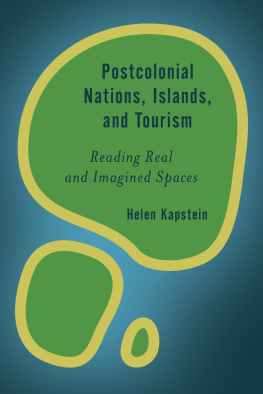

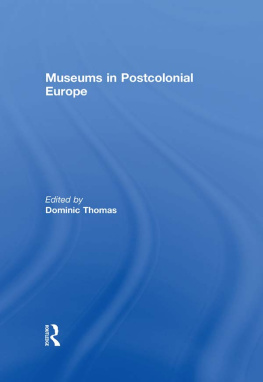
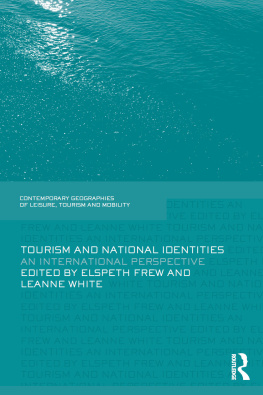
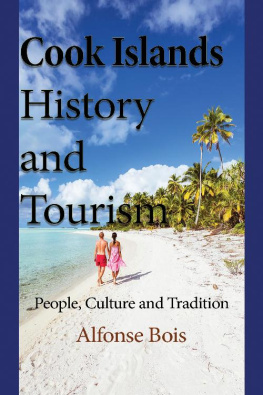
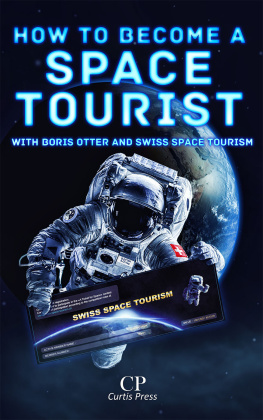
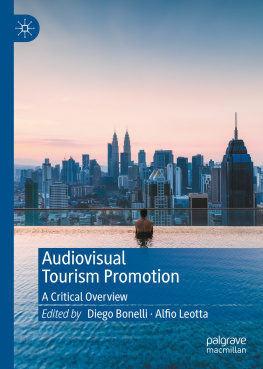
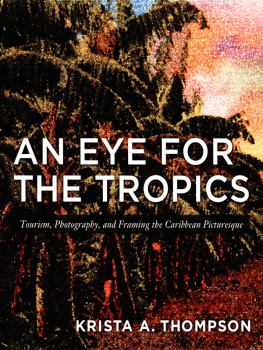
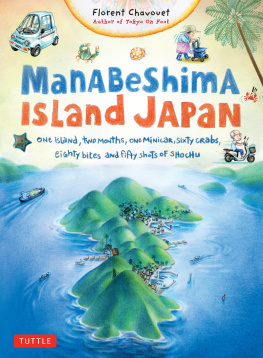
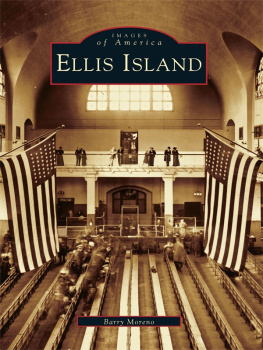

 The paper used in this publication meets the minimum requirements of American National Standard for Information SciencesPermanence of Paper for Printed Library Materials, ANSI/NISO Z39.48-1992.
The paper used in this publication meets the minimum requirements of American National Standard for Information SciencesPermanence of Paper for Printed Library Materials, ANSI/NISO Z39.48-1992.